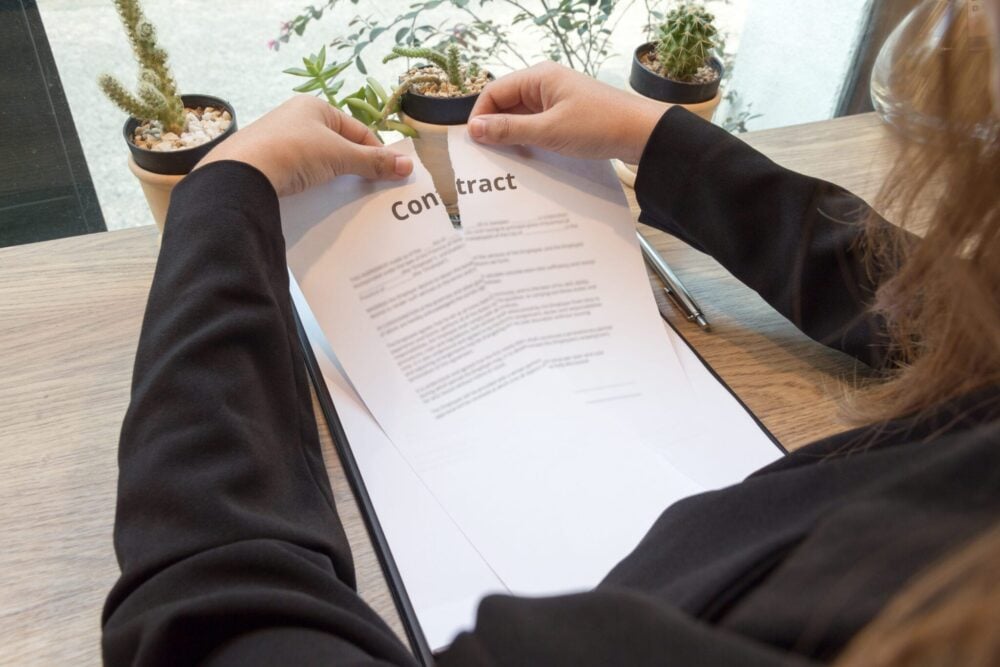There are a number of reasons why you might want to break a lease on an apartment. In some cases, the law is on your side- for example, when enlisting for military duty, fleeing domestic abuse or moving to a retirement home. But what about all the other sound reasons to move which are not protected by law? While it is totally understandable that you would want to get out of a lease if you’re pregnant and the property is too small, or if you got an amazing job offer across the country, some landlords may not be so sympathetic. And even if they are, it is still a question of money. Remember, your rent equals their income.
What happens if I break my lease?
A lease is a binding legal contract, which means your landlord can demand full payment for the remainder of the lease and even take you to court for it. If they win, you will need to pay much more than the remainder of the rent- think lawyers’ fees and interest. Breaking a rental agreement can also be damaging to your credit score, which will have long lasting effects on your finances.
As with most contracts, there are penalties that you might face to break your lease. The goal is to get the least penalty possible, but do not be surprised if your landlord does not come after you for the full total for the remainder of the lease.
If you really need to move, check out these five tips (before you hire a moving company) on how to get out of a lease early:
-
Find Something Wrong
One of the ways to get out of a lease without penalty is to find some occurrence in which your landlord was in breach of the contract and use it as a an escape route. In many cases, this is going to be absolutely impossible. If your landlord has always fixed problems promptly and you have no documented complaints even your lawyer may tell you there is no way you are getting out without penalty. However, if he promised to install a fence last summer, add more insulation before the winter, or replace the carpeting and never followed through, you may have a case. If you have had problems with a neighbor being disruptive and the landlord has done nothing to intervene, you may have a valid reason that will hold up in court. Obviously, if there is something seriously wrong with the property and the landlord has not fixed it then you have the legal right to vacate without penalty.
-
Review Contract for Termination Clause
Reading your rental agreement carefully is highly advised when contemplating breaking a lease. If it reads more like Mandarin than English to you, your local tenant’s rights organization or local legal aid office can help with that. Many landlords today add an early termination clause in their lease to make it fair for the tenant; it’s also beneficial for them as it decreases the risk of dealing with vanishing tenants. Your lease may allow you to terminate with a 60-day notice for job relocation, major life change, or if you need to become the caregiver of a loved one. You might also discover the lease termination fee specified is much lower than you’ve been dreading, which could simplify things significantly.
-
Sublet
Subletting is not always an option. If your lease specifically says you cannot sublet, do not bother even trying. It is also important to note that you need to find someone completely trustworthy and reliable because you will still be legally responsible for the property. The exception is if your landlord allows the new renter to apply, pay a security deposit, and sign their own lease. If you sublet, you also have to make sure the person will pay you on time so you can pay the landlord. You may want to consider having their rent due on a day mid-month to ensure you have it on time.
-
Lease Termination Agreement
While your landlord may not be happy with your early departure, they still may be reasonable enough to come to an agreement that sorts out the issue of fees, finding new tenants and other matters pertaining to the property. This type of contract is called a lease termination agreement and it reflects both landlord’s and tenants’ rights and obligations.
-
Pay the Fees (and Lawyer Up)
What happens when you break a lease depends on what kind of person your landlord is. If they are very strong headed and not open to any kind of agreement or compromise your only option (other than staying in the apartment) might be to cough up whatever the lease specifies in terms of fees and compensation. At this point you should definitely get some professional legal advice- not all leases are created equal and a lawyer might be able to help you bring those fees down.







